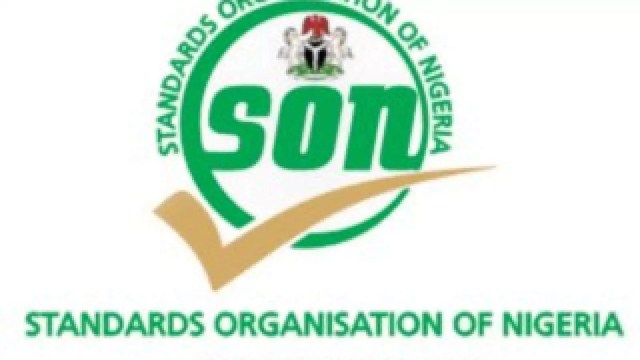Members of the business community have urged the Standards Organisation of Nigeria (SON) to further digitalise its processes and improve operational models to reduce human interference and promote a hospitable business environment.
They spoke on Friday in Lagos at the public-private dialogue on the efficiency and impact of regulatory activities of the SON on Small and Medium Enterprises (SME) in Nigeria.
The study on SON’s activities was commissioned by the Lagos Chamber of Commerce and Industry (LCCI) and the Centre for International Private Enterprises (CIPE).
In his remarks, Mr Ibrahim Adigun, Researcher, Qualiquant Services Ltd., said the study was conducted on 468 SMEs in four locations namely; Lagos, Aba, Onitsha and Kano, using mixed methodologies.
Adigun said that the analysis focussed on SON’s organisational and administrative effectiveness to determine the influence of SON’s activities on SMEs in the selected areas.
He said that thematic areas covered by the report included the services provided by SON to SMEs, the typical time it took to supply the services and the challenges faced by the SMEs in assessing these SON services.
The researcher said the study showed that in spite of SON’s operations being technically adequate, there were significant gaps in their effectiveness.
According to him, operational procedures that allow corruption to proliferate throughout the system existed in the agency.
“Although, SMEs are prepared to work with SON, the bureaucratic procedures and difficulty in using its services are major deterrents for these businesses.
“This is having a negative effect on how well accepted SON is and could eventually have an influence on the agency’s mission.
“It is obvious that many SMEs have not benefitted from the series of awareness programmes reeled out by SON, which sometimes hinges on inadequate sensitisation,” he said.
Adigun added that the study revealed high preference of SMEs to interact with SON in their various offices or use physical intermediaries which indicated a high underutilisation of provided online platforms.
He said that regardless of the apparent challenges of utilising online platforms by SMEs, SON should not be discouraged from investing heavily in digitalisation to reduce human interface where best practice could be compromised.
“SON must develop swift and prompt response services to immediately address the demands of SME, which might be accomplished by implementing a successful digital response management system.
“To fully inform SMEs about its services, fees and response turnaround time, SON should start an efficient marketing campaign.
“SON is highly understaffed and government needs to invest heavily in infrastructure to enable the agency to function effectively,” he said.
Also, Mr Soji Apampa, the Chief Executive Officer, Convention on Business Integrity (CBI), charged the business community not to throw out code of conducts and value system in a bid to fast-track SON processes.
Apampa called for collaboration between the business community and SON to officially make business processes quicker.
“Business owners should be deliberate in discouraging unreceipted payments to SON officials and must sensitise its members on the benefits accrued to registration and certification of SON.
“The SON must also create a feedback system that works adequately,” he said.
Commenting, the LCCI President, Dr Michael Olawale-Cole, noted that findings of the study revealed that SMEs were unaware of some of the services, processes, utilisation of technology/resources provided by SON.
Olawale-Cole said that some unscrupulous officials took advantage of the ignorance to demand for unreceipted payment, thereby casting aspersion on the entire agency.
“The LCCI is organising this event focussed on SON processes to create platforms for continuous engagement between SON and SMEs in Nigeria.
“We are pleased to acknowledge the commitment and cooperation of SON officials in driving through this process for a win-win situation for business and government,” he said.
In her remarks, the CIPE Country Director, Mrs Lola Adekanye, stressed the need to empower and remove the barriers to MSME success to enable the country to take its rightful place among global economies.
“The world has high expectations for Nigeria and we can take these expectations and meet them by little tweaks and improvement to enhance the private sector,” she said.
Responding, the Director-General of SON, Malam Farouk Salim, represented by Mr Richard Adewunmi, Director, Marketing, pledged that the agency would review the findings and take on the recommendations.
“In line with our ISO standards certifications, SON does not have agents that interact with our clients.
“The ideal thing is to go to our website and navigate by department as part of our efforts to come first in the ease of doing business agenda reform in the country,” he said.













